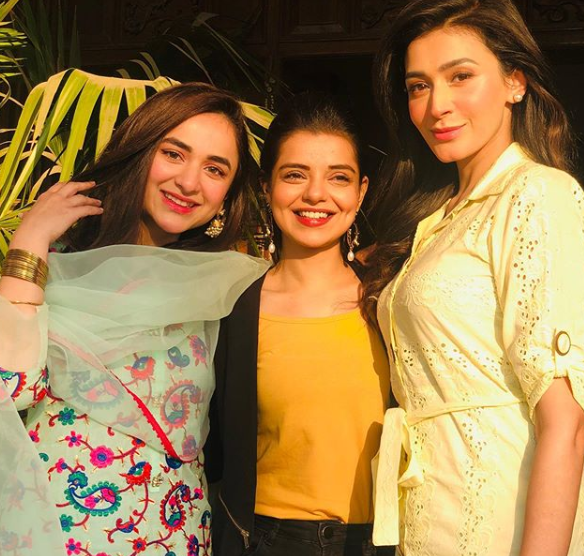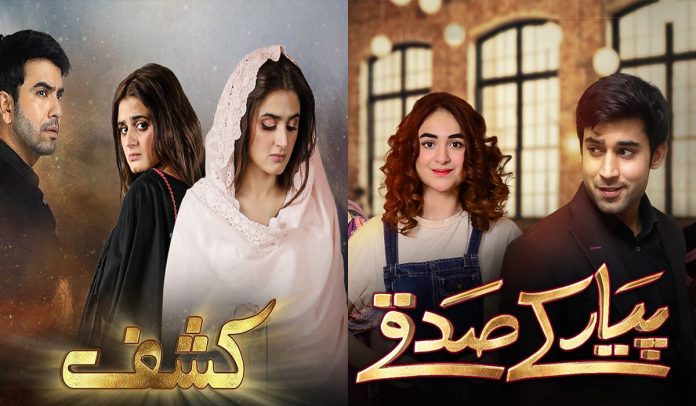In Pakistan, the debate over phuppos is a tale as old as time. In our standard cultural narrative, they are usually depicted as ruthless characters who would stop at nothing to destroy their brothers’ or sister-in-laws’ lives. And when it comes to Pakistani dramas, their representation naturally reflects the social stereotype, i.e. they are always khabees — which don’t get us wrong, can actually happen. But all the time?
Not so khabees, after all?
Coming back to the usual phuppo in television shows, if there is a character who is constantly poking her evil nose in her brother’s married life, it has to be her. While it’s debatable to what extent this stereotype is grounded in reality, it is only fair that all characters be not be painted with the same prejudice, just on the basis of their relationship.
And while we are on this subject, it has to be said that phuppos in the real world often break the wicked stereotype and actually end up having good relations with the brother(s) in question and their family. Yes, they can be quite likeable. And this is exactly what the dramas Kashf and Pyar Ke Sadqay are trying to show.
Aashi in Kashf
When Kashf started, it had the usual line up of stock characters that often dot Pakistani dramas. A father of three daughters who constantly nags his wife for not giving him a male child (Waseem Abbas can do this role with his eyes closed at this point), a helpless mother who cannot seem to stand by her daughters, a mother-in-law with views as outdated as herself and a sister who is apparently eyeing her sister’s fiancé.
However, when we get to know about the phuppo of the main lead Kashf, the portrayal feels quite non-stereotypical. Now divorced, Aashi (essayed by the talented Hajra Khan) is living with her brother but does not depend on him as the breadwinner. Instead, the whole house depends on her as she is the sole earner.
Moreover, instead of handing over her salary to her mother or even her brother, she gives all the money to her sister in law, who is in charge of running the house. Apart from financial help, Aashi provides great emotional support too. She defends her sister-in-law from her mother and brother and is more of a best friend to Kashf. Hajra Khan is doing a marvelous job with her character. It feels natural, realistic, and indeed quite refreshing.
Pho from Pyar Ke Sadqay
Pyar Kay Sadqay is a complete entertainment package; it has superb performances, skilled direction, a fresh story, and a wide array of characters. One of these characters is Abdullah’s phuppo, Pho, played effortlessly by Shermeen Ali. As of the latest episode, her real name isn’t revealed. Everyone in the drama calls her Pho, which is short for phuppo.
 What makes this character so refreshing is that she is the sister of Abdullah and Washma’s deceased father in the play. Even though their mother, Mansoora, married another man, Sarwar, Pho never left their lives. In fact, Washma practically lives with Pho. That’s how close she is to all of them.
What makes this character so refreshing is that she is the sister of Abdullah and Washma’s deceased father in the play. Even though their mother, Mansoora, married another man, Sarwar, Pho never left their lives. In fact, Washma practically lives with Pho. That’s how close she is to all of them.
Pho actively participates in their decisions and offers genuine advice and she does not depend on the family to feed her even though it was her late brother who set up the entire business.
If she wanted, she could have made a thousand excuses for either not having to do something with that family or for managing the entire business herself. However, she understood that her late brother’s wife and children were as much important to him as she was.
Pho truly is that phuppo with a heart of gold!
Final word
While both of these characters are miles apart, what unites them is the affectionate bond they share with their brother’s families. Some people might not consider this a big deal, but given the way phuppos have too often been shown as mean and manipulative, these dramas deserve a round of applause!




